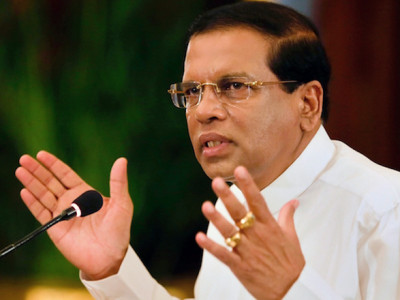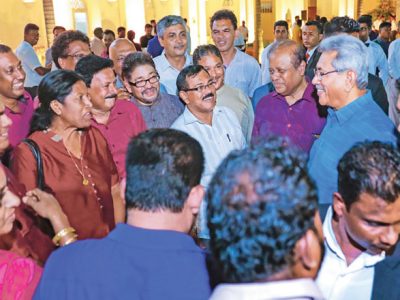(COLOMBO, LANKAPUVATH) – Prof. Donat-Peter Hader Häder, a German expert on a non-toxic and sustainable method of eradicating dengue mosquito larvae using chlorophyll derivatives, recently met with Sri Lanka’s Minister of Health and Indigenous Medicine, Women and Child Affairs and Social Security Pavithra Wanniarachchi at the Ministry of Health.
The German specialist noted that the current mosquito eradication process using chlorophyll derivatives is very different from other methods which use chemical insecticides.
Mosquito eradication usually involves the application of a chemical that is toxic to the mosquito larvae, which in turn destroys not only the mosquito but also other microorganisms in the environment. Also the children and other animals can also be affected such chemicals.
Furthermore, he pointed out that since Sri Lanka does not manufacture the chemicals used in insecticides, a high cost will have to be incurred for mosquito eradication.
However, Prof. Häder, pointed out that using chlorophyll derivatives to eradicate mosquito larvae is a non-toxic sustainable method, since chlorophyll is abundant in Sri Lanka and there is no shortage. He explained that chlorophyll can be obtained from any source such as grass and banana leaves and the active ingredient, chlorophyllin could be made in a simple chemical process by extracting chlorophyll from leaves.
This compound can be used at very low concentrations to kill mosquito larvae and the toxicity of chlorophyllin to the mosquito larvae is shown only in the presence of sun light. He pointed out that this non-toxic sustainable system will not harm the human and the ecosystem.
The German scientist expressed interest to collaborate with the Dengue Eradication Unit of the Health Ministry and the Medical Research Institute (MRI) to produce the active component using the chlorophyll sources in Sri Lanka and experiment with the application to the dengue mosquitoes in the country.
The Minister of Health said that if a non-toxic, sustainable method could be used for the eradication of dengue mosquito larvae, it would be important and requested the visiting scientist to conduct the experiments and apprise her of the success of the method to eradicate the mosquitoes in the country.




